I suppose that it’s partially inherited from my mother’s father who was a Professor of English, but I have always been interested in the intelligent use of the English language. Yes, I certainly have used my share of slang and jargon (Jargon: the proper name for the language, especially the vocabulary, peculiar to a particular trade, profession, or group). And, I have been known to use a fairly broad range of vulgarisms during my life. Of course, all of these sorts of things are, in fact, legitimate parts of a language, even if such “special” words may be frowned on by my wife and varying groups of the “language police.”
English is a language with roots which can be traced to much of Northern Europe, France, Rome and a wide variety of Celtic and other influences. And, I should add, unlike French and some other languages, it has really never been successfully standardized, although people constantly do insist on trying to do so. (Never completely successfully, I should note.) Some suggest that this lack of standardization MAY be why it seems well-suited for poetry and other forms of linguistic invention. I think it's also why it is so easy to find (or make up) humor based on the foibles of the language.
I got to thinking about this a few weeks ago when someone sent me some grammatical variations on the classic “A man walked into a bar” jokes. This led me to look up “language humor” and I found that there is a good deal of it posted out there. So, I thought I’d share some of what I found. I hope you enjoy it. Who knows, you might even have some questions regarding some of them. I’ll admit that I had to think about some. Still, I think they're amusing, and I hope you will, too. I've also included some grammar/language cards and signs because I found them funny.
An Oxford comma walks into a bar where it spends the evening watching television getting drunk and smoking cigars.
A dangling participle walks into a bar. Enjoying a cocktail and chatting with the bartender, the evening passes pleasantly.
A bar was walked into by the passive voice.
An oxymoron walked into a bar, and the silence was deafening.
Two quotation marks walked into a "bar."
A malapropism walks into a bar, looking for all intensive purposes like a wolf in cheap clothing, muttering epitaphs and casting dispersions on his magnificent other, who takes him for granite.
Hyperbole totally rips into this insane bar and absolutely destroys everything.
A question mark walks into a bar?
A non sequitur walks into a bar. In a strong wind, even turkeys can fly.
Papyrus and Comic Sans walk into a bar. The bartender says, "Get out -- we don't serve your type."
A mixed metaphor walks into a bar, seeing the handwriting on the wall but hoping to nip it in the bud.
There seems to be quite a lot of folks who have noticed that many people have difficulty with commas, and so they have posted amusing examples. Here are some:
One of my watchwords from my paper grading/thesis editing days was:
Bonnie and I were watching something on the news recently when the reporter, referring to plans for opening schools, mentioned the idea that the desks needed to be spaced out in the classrooms to avoid spreading COVID. This got us to thinking about how the phrase "spaced out" has recently come to mean something quite different from what it did when we were in college. That amused us a good deal, so I thought I'd include mention of this in this post. Ah, the changes time brings to language.
Here's another example from "Zits:"
In any event, I'll be back in a couple of weeks....
LLAP,
Dr. B
P.S. I saw this the other day and couldn’t resist. Okay, it COULD be considered political, by those with no sense of humor, but it gave me hysterics!
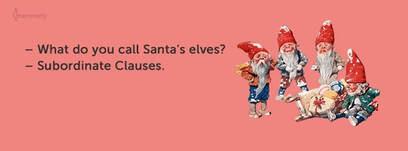
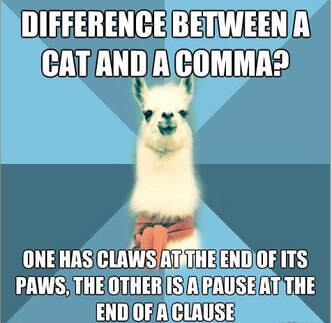
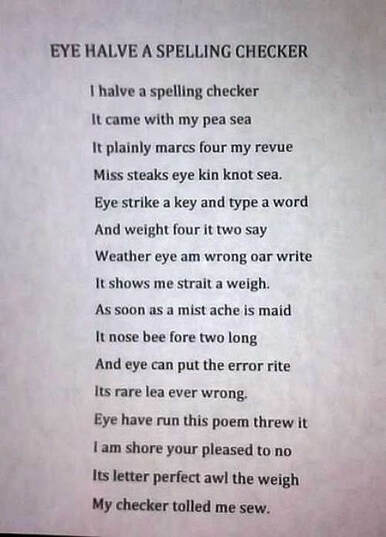
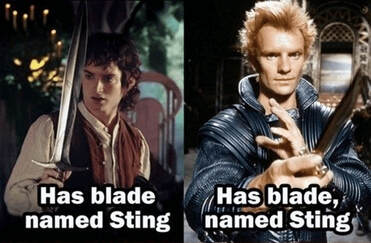
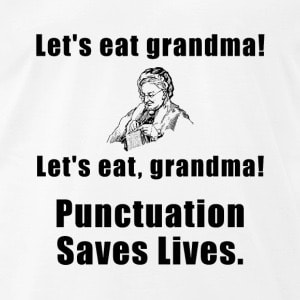
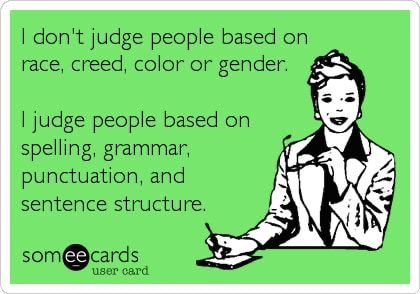


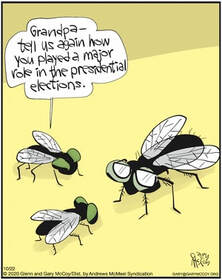
 RSS Feed
RSS Feed